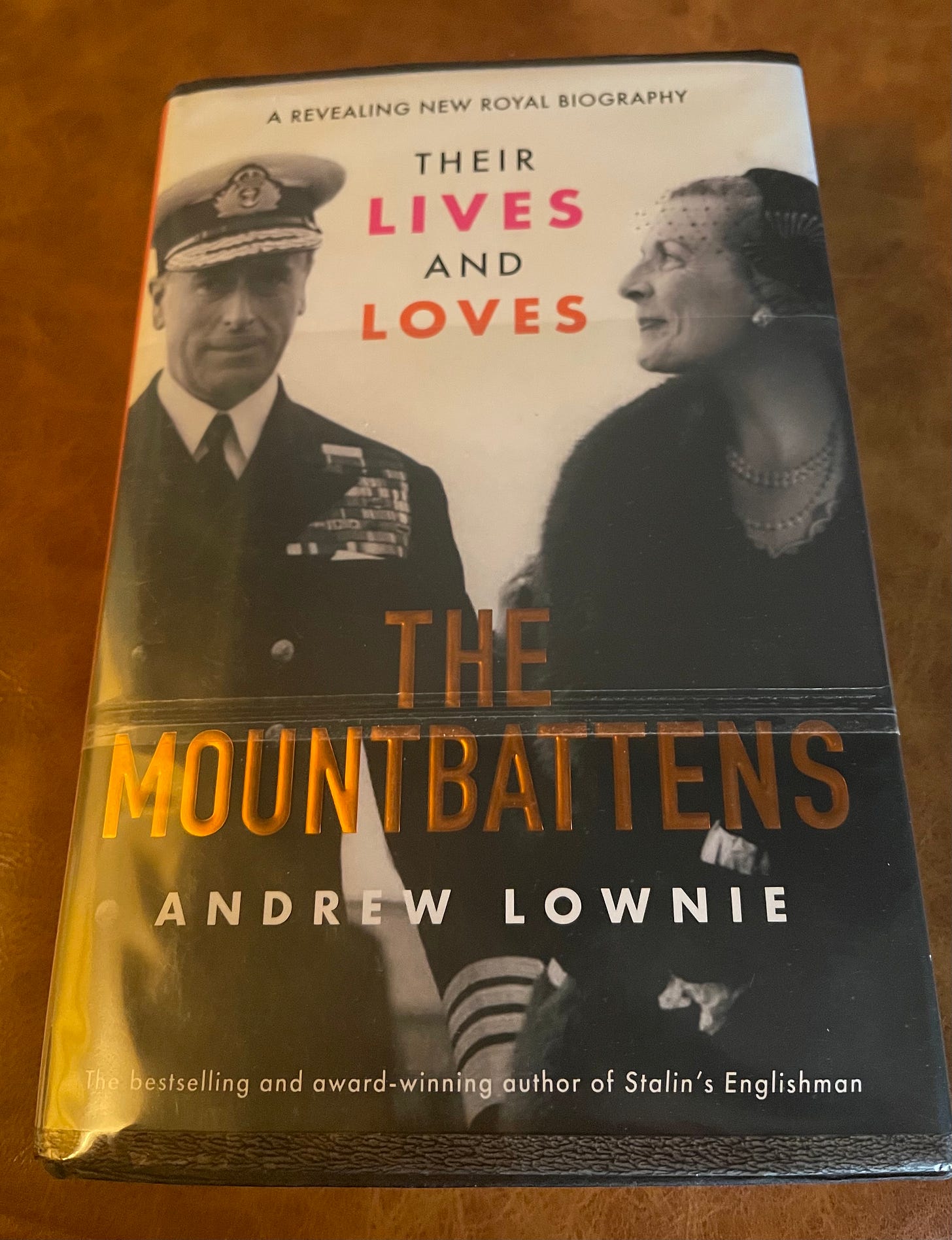Books: “The Mountbattens: Their Lives and Loves”
by Andrew Lownie
When Lord Louis Mountbatten (“Dickie”) wed Lady Edwina Ashley in 1921, historians called it the marriage of the century. He, the great-grandson of Queen Victoria, looked smart and dashing in his naval uniform, was closely connected with the royal family, and
headed for a promising career in the military. She was a beautiful, spirited Bright Young Thing who just happened to have inherited millions from her banker grandfather.
But there was trouble in paradise, as Andrew Lownie in his new book “The Mountbattens: Their Lives and Loves” reports. While Dickie busied himself with maps and sextants, Edwina busied herself with sex with other men—prominent athletes, jazz musicians, even according to some royal watchers, Paul Robeson.
By the end of the 1920s, the couple had come to an “understanding:” he would look the other way while she had her extramarital affairs, and she would do the same whenever he acquired a new girlfriend.
This is not the first biography of Dickie and Edwina, but it is unusual in that it deals frankly with the couple’s “open” relationship. It was not until WW II when they became involved in an effort bigger than themselves did the relationship improve; Dickie focusing on military matters for the Allies while Edwina concentrated on medical and humanitarian efforts.
This close relationship continued after the war, when Dickie as Viceroy of India helped the country gain its independence (something for which Churchill never completely forgave him). Meanwhile, Vicereine Edwina was up to her old tricks. Besides helping Dickie cool down an inflammatory Hindu-Muslim situation, she began a long-lasting love affair with Prime Minister Nehru.
Like other biographers, Lownie does not shy away from Mountbatten’s controversial military record. While he credits LM’s gregariousness, creativity, and desire to modernize the military, he calls him out on Operation Dieppe (the failed pre-Overlord invasion of Europe in 1942), and most critically the hasty partition of India in 1947, when millions lost their lives. On the latter, Dickie later admitted to an interviewer: “I f*cked up.”
While Dickie’s winning personality gained him admirers, he was also insecure, demanding, and underhanded: “If the front door were open, Dickie would still prefer to come down the chimney,” confided one wag. After Edwina died in 1960, he began dating actresses such as Shirley MacLaine, along with long-legged young women 40 years younger, and not a few strapping young male soldiers on the sly. “Why do you think I’m Colonel in Chief of the Life Guards?” a friend said. “We have such beautiful boys.”
An excellent, truth-telling dual biography that pays homage to one of the 20th-centuries most glamorous couples. Young British royals today could only dream of such a legacy.


I do hope the book doesn't shy away with the questionable German past of the family branch. Mountbatten is a made-up name after all. Or, as George V quickly declared in 1917 before WW I ended since anti-German sentiment ran uh...high shall we say? "Now, therefore, We, out of Our Royal Will and Authority, do hereby declare and announce that as from the date of this Our Royal Proclamation Our House and Family shall be styled and known as the House and Family of Windsor, and that all the descendants in the male line of Our said Grandmother Queen Victoria who are subjects of these Realms, other than female descendants who may marry or may have married, shall bear the said Name of Windsor. And do hereby further declare and announce that We for Ourselves and for and on behalf of Our descendants and all other the descendants of Our said Grandmother Queen Victoria who are subjects of these Realms, relinquish and enjoin the discontinuance of the use of the Degrees, Styles, Dignities, Titles and Honours of Dukes and Duchesses of Saxony and Princes and Princesses of Saxe-Coburg and Gotha, and all other German Degrees, Styles, Dignities. Titles, Honours and Appellations to Us or to them heretofore belonging or appertaining." - boy oh boy...